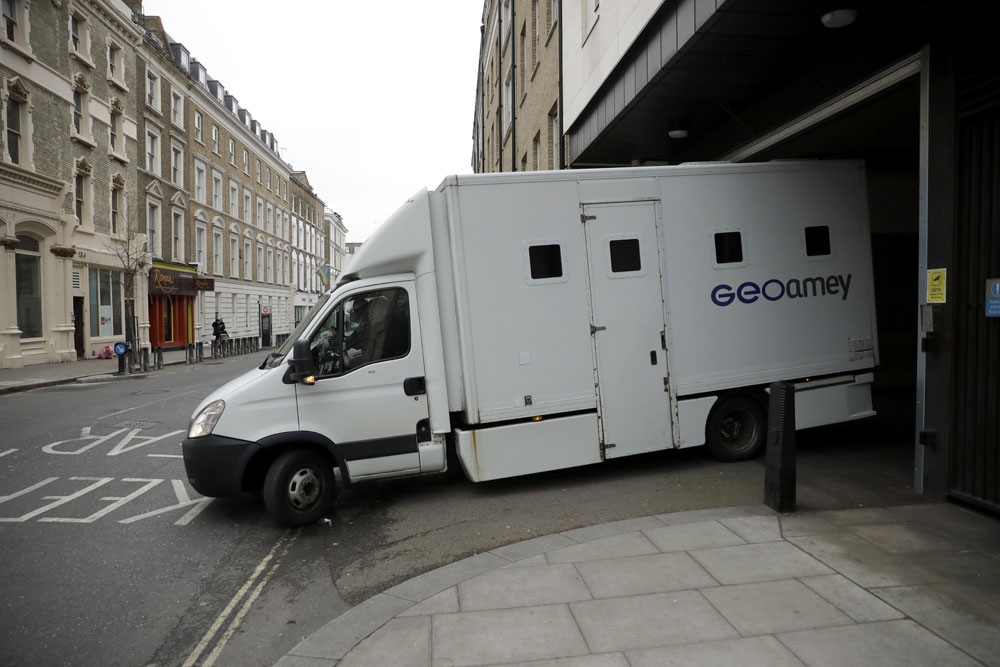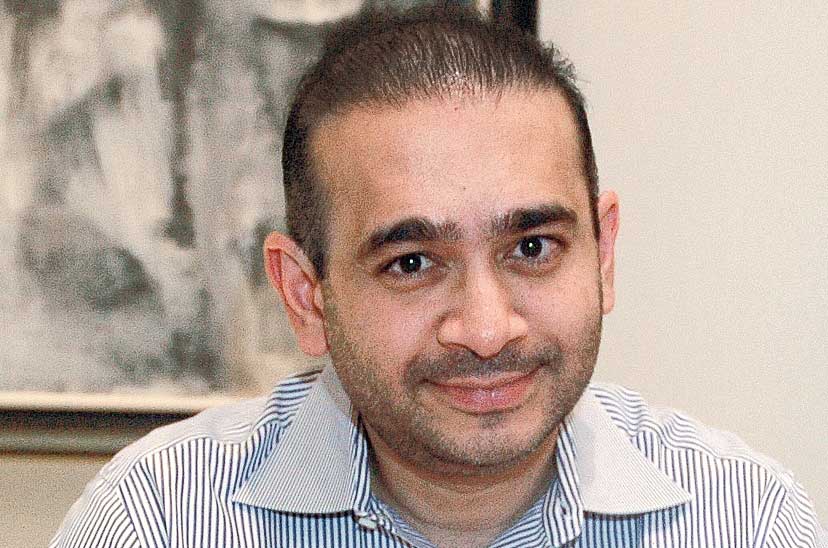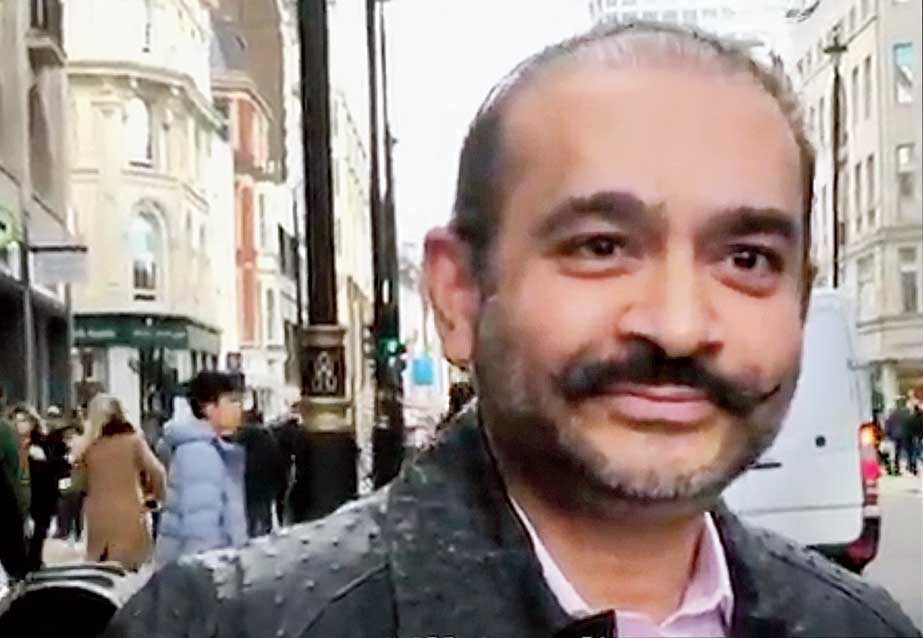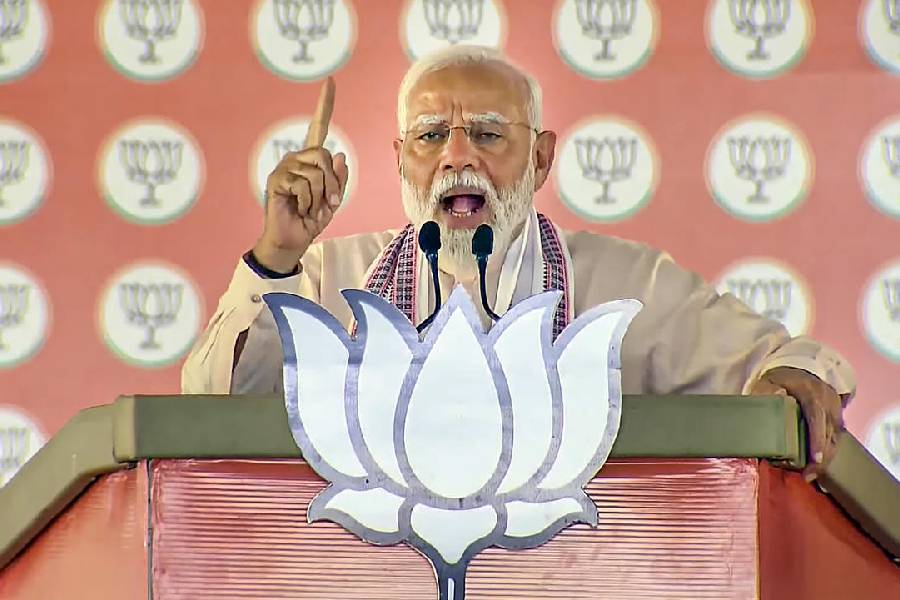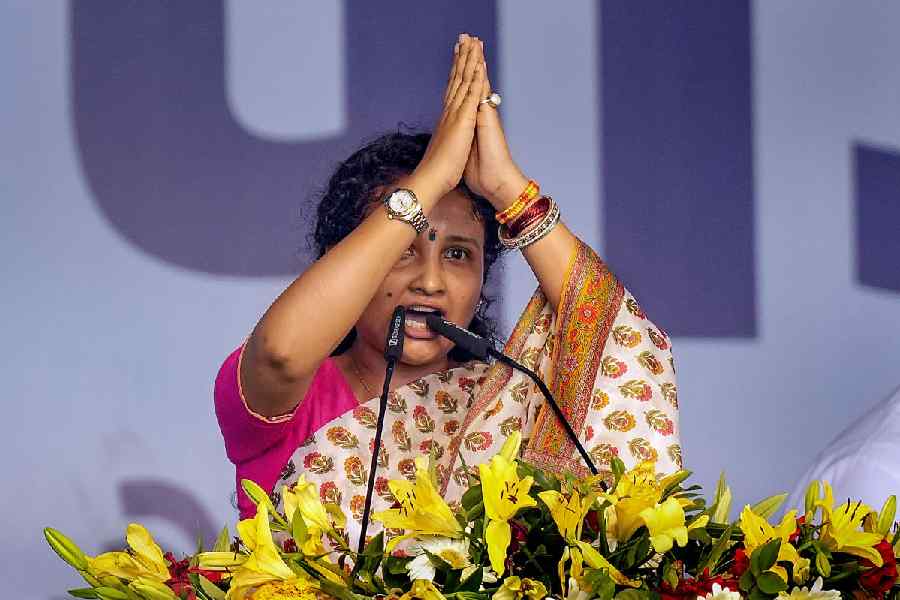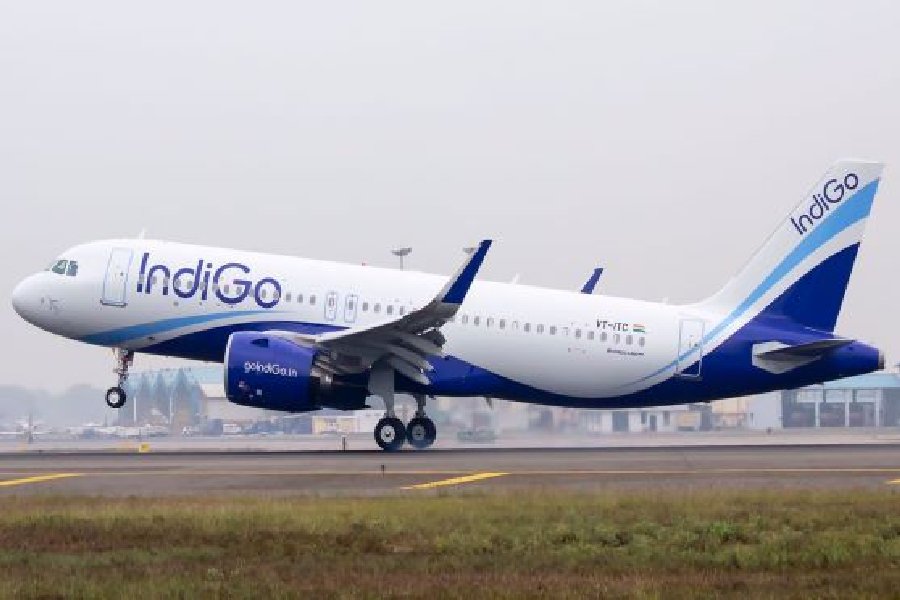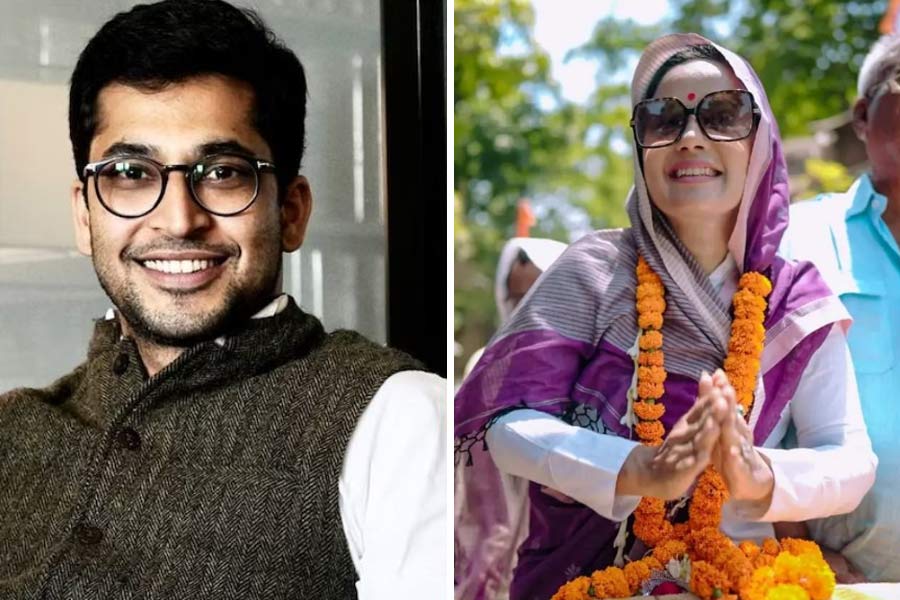A UK court could decide in no time that Nirav Deepak Modi is a flight risk and he needs to be kept in jail till his fate is decided, something the Indian security establishment had wised up to only after the diamantaire had posed for a picture with the Prime Minister and then vanished.
Nirav was denied bail — in marked contrast to Vijay Mallya — when he appeared at the Westminster Magistrates’ Court in London on Wednesday because the judge felt the fugitive diamantaire was rich enough to find ways of fleeing the UK.
Nirav, accused of defrauding Punjab National Bank to the tune of Rs 13,000 crore, will remain in custody until his next appearance on March 29, an indignity that was spared fugitive liquor baron Mallya whose extradition has been ordered by home secretary Sajid Javid. Mallya has taken his appeal to the high court following a hearing at the Westminster Magistrates’ Court.
Nirav, also fighting extradition to India, was arrested in central London on Tuesday.
The legal process to extradite Nirav will be identical to that pursued in the case of Mallya — a court hearing followed by appeals.
Nirav, standing behind a reinforced glass wall, said “I don’t consent” when asked whether he agreed to be extradited to India.
“His refusal is likely to spark an extradition battle that could take years,” predicted The Daily Telegraph, the British newspaper that had tracked him down. Nirav was living “openly” in the UK, his lawyer said.
District Judge Marie Mallon ruled that there is a risk Nirav would fail to surrender for future hearings because of his access to large sums of money. “I believe you may have means of escape,” the judge told Nirav.
Nirav offered to put up £500,000 as surety but this failed to convince the judge.
The 48-year-old jeweller flew out of India on January 1 last year and has not been back since. In between, he managed to get himself photographed with Prime Minister Narendra Modi and others in Davos although complaints had been sent earlier to Indian agencies. A week later the scandal became public.
Nirav’s defence team, which includes Anand Doobay — also the representative in Mallya’s extradition case — argued that their client arrived in the UK in January 2018 before any allegations had emerged in India.
Barrister George Hepburne Scott, also part of the team, said: “His son was here and had been here for five years at school.”

